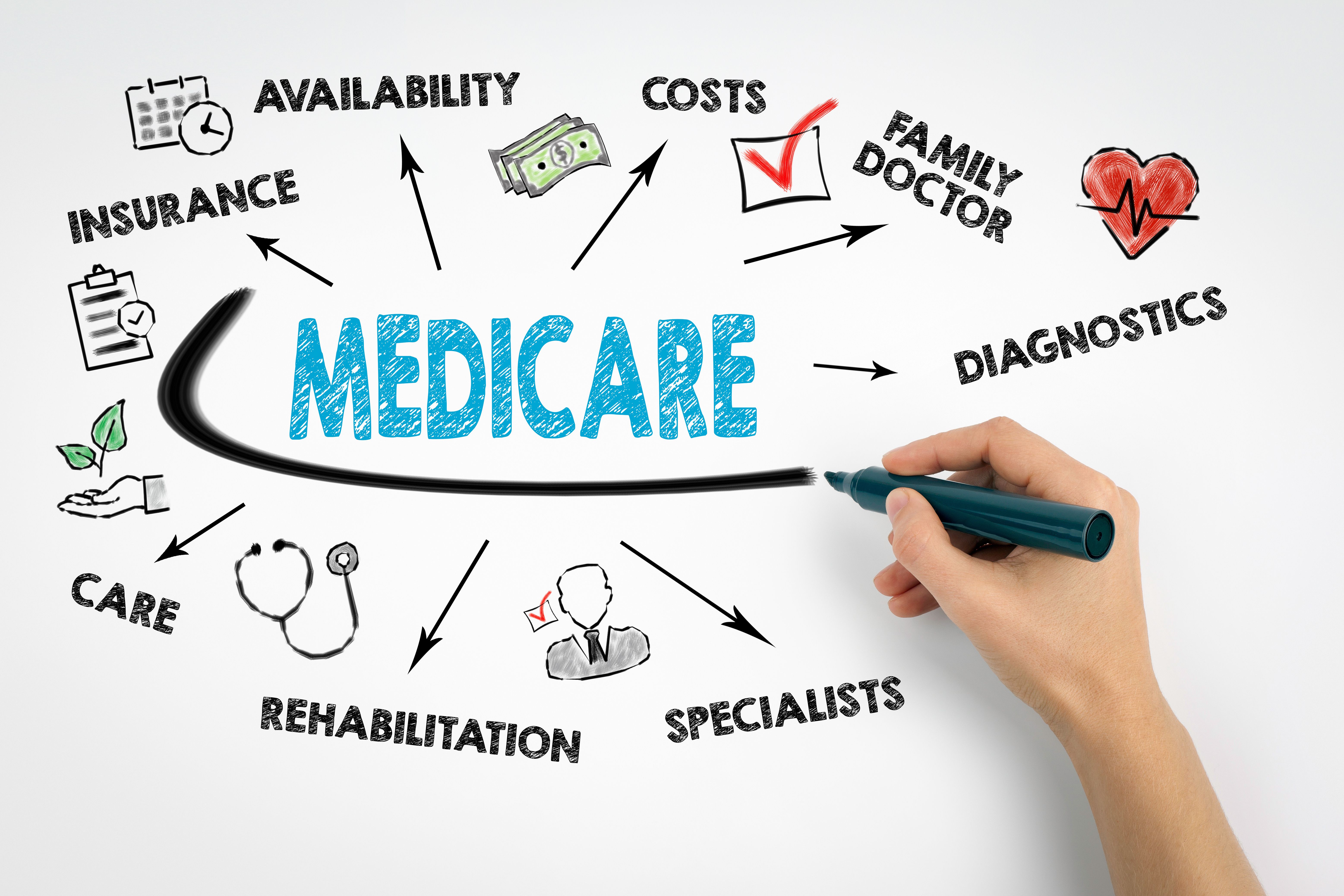- Center on Health Equity & Access
- Clinical
- Health Care Cost
- Health Care Delivery
- Insurance
- Policy
- Technology
- Value-Based Care
Americans Uncertain About Medicare’s Future as Anniversary Approaches
A new survey reveals that 80% of Americans not enrolled in Medicare are afraid that Medicare will not be there when they are eligible to enroll.
With the 60th anniversary of Medicare approaching on July 30, the future of the program remains uncertain in the eyes of Americans who have yet to enroll in the program. A new survey from eHealth and Retirable of 1000 Americans demonstrated a lack of faith in the longevity of Medicare, as well as a lack of knowledge about health care costs in retirement and Social Security payments.1 The survey findings highlight the lack of education surrounding how to use the programs and how long they will last.
A new survey highlights a lack of knowledge on the intricacies of Medicare and Social Security. | Image credit: STOATPHOTO

The survey comes soon after the budget bill passed on July 3,2 which featured massive cuts to Medicaid and food assistance programs that would leave 11.8 million people uninsured by 2034. Amid cuts to these programs, Americans are less sure about how safe other safety-net programs are in the US. The survey highlights this lack of confidence and also a gap in the education of Americans on these programs.
A total of 80% of people who are not enrolled in Medicare reported they were worried that Medicare would not exist by the time that they would be eligible for the program.1 Millennials comprised the generation that was most concerned about the future of the program. Although participants were less sure about the longevity of the program, 78% of those surveyed viewed Medicare positively as a program, indicating the popularity of Medicare as a system. This is especially important for the surveyed group, as 76% were found to underestimate the costs of health care that would be needed in retirement. The current estimate of $200,000 was underestimated by this population, with 40% assuming they would spend less than half of that estimate in health care costs after retirement.
Even though Americans liked the program, 34% of the surveyed respondents did not want to raise taxes or reduce benefits to make sure that Medicare continued. This is contrasted by the 30% who were willing to reduce benefits to current Medicare beneficiaries and 24% who were willing to increase payroll taxes to ensure continued use of the program.
In addition, 80% of the participants who were not enrolled in Social Security were worried that the program would not be available to them, with Millennials being the most concerned (85%) and Baby Boomers the least concerned (68%). The participants also did not know how long people needed to work to qualify for Social Security, with 28% underestimating, 26% overestimating, and 26% claiming they didn’t know; 20% chose the correct length of 10 years.
Social Security payments were also found to be a blind spot of education for the surveyed participants, with 82% of the participants either over- or underestimating the monthly payment from Social Security. A total of 47% of the surveyed Americans underestimated the average monthly Social Security payment compared with 35% who overestimated it. Most of the participants of the survey also believed that Social Security would remain solvent for years, with 54% believing it would be solvent for longer than the current predictions of 2033 or were not sure when it would become insolvent, and 17% believed that Social Security would remain solvent through at least 2050. Americans also viewed the program positively, with 73% having a positive reception toward Social Security.
“To mark the upcoming birthdays of Medicare and Social Security, we fielded this survey to highlight the important connection between personal healthcare and financial well-being, and to encourage all Americans to make more informed decisions when it comes to Medicare and their retirement planning,” Frain Soistman, CEO of eHealth, said in a statement.
The results of this survey reveal that, although Americans are overall very positive when it comes to the continuation of both Medicare and Social Security, information on these programs is relatively low. Most Americans are unsure about whether they will be able to benefit from these programs and don’t know how much money to expect each month when they collect their Social Security. The survey emphasizes the need to do more outreach programs and interventions to help educate Americans about these programs, as well as the likelihood of their being available in the future. Educating Americans about these services can help younger Americans retire with the proper financial safety nets in place.
References
1. Medicare at 60 years old: eight in 10 Americans not yet enrolled worry the program won’t be there for them. News release. July 10, 2025. Accessed July 10, 2025. https://news.ehealthinsurance.com/news/medicare-at-60-years-old-eight-in-10-americans-not-yet-enrolled-worry-the-program-won-t-be-there-for-them
2. Campa AJ. Trump’s ‘Big Beautiful Bill’ has been signed into law. What does that mean? Los Angeles Times. July 6, 2025. Accessed July 10, 2025. https://www.latimes.com/california/newsletter/2025-07-06/20250706-sunday-essential-california-trumps-big-beautiful-bill-passed-what-does-that-mean
